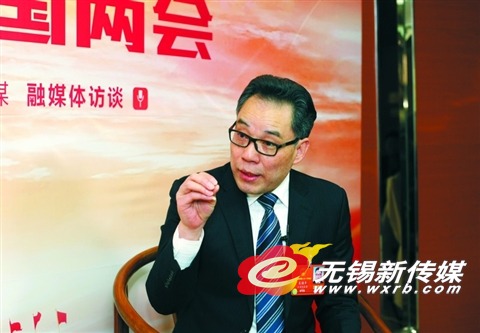Wu Guoping: Promoting diverse, intelligent and high-quality tourism


Wu Guoping, deputy of the 13th National People's Congress and chairman of Wuxi Lingshan Cultural Tourism Group, believes that the key to getting rid of a "ticket economy" within the tourism industry is through diversified and intelligent development. [Photo/wxrb.com]
During this year's two sessions, Premier Li Keqiang proposed reducing the ticket price of key state-owned scenic spots. This is the first time that "ticket price" has been mentioned in the Government Work Report.
Wu Guoping, deputy of the 13th National People's Congress and chairman of Wuxi Lingshan Cultural Tourism Group, said that the government's proposal to lower the ticket price of key state-owned scenic spots is actually a force-reducing mechanism. It has become a general trend within the tourism industry.
Wu also said that tourism has become a kind of mass consumption. Tourist attractions cannot rely solely on ticket prices. Over its 20 years of development, Lingshan has gradually decreased its reliance on a “ticket economy” in favor of diverse, large-scale tourism.
Nianhua Bay, a landmark Buddhist tourism town built by Lingshan Group, received more than 1.8 million visitors over two years by providing tourists with an exceptional travel experience.
Wu believes that the key to getting rid of a "ticket economy" is through diversified development – broadening the notion of tourism, continuously improving development methods, and extending industrial chains.
The Government Work Report also says that artificial intelligence technology and the Internet can help develop the tourism industry.
Wu stated that "Though people can now book and pay online, it isn't enough. In the future, 'intelligent' tourism destinations ought to be more attractive and competitive."
Lingshan Group currently uses the Internet to sell tickets and products. Wu revealed that Lingshan Group is preparing to cooperate with Huawei to create a "smart tourism destination" and make scenic areas smarter.
Lingshan is now focusing on the creation of a creative cultural tourism industry chain. Wu believes that the tourism industry can be developed into a new pillar of economic growth by improving accommodation, activities, services and other core aspects of tourism.
MOST POPULAR
Editors' Picks
 Infographic:
China's development in culture, tourism industries
Infographic:
China's development in culture, tourism industries
 Infographic:
China's major developments in 2024
Infographic:
China's major developments in 2024
 Infographic:
Highlights of China's 5th national economic census
Infographic:
Highlights of China's 5th national economic census




